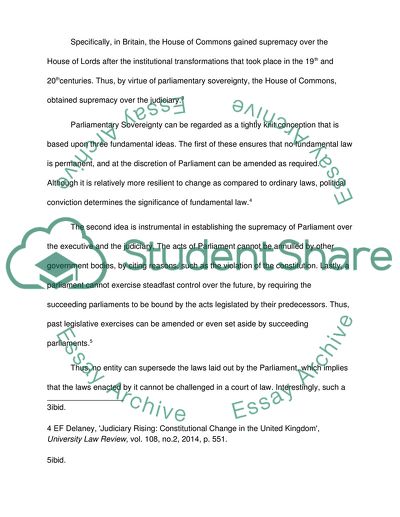Cite this document
(“Parliamentary Sovereignty Essay Example | Topics and Well Written Essays - 1500 words”, n.d.)
Parliamentary Sovereignty Essay Example | Topics and Well Written Essays - 1500 words. Retrieved from https://studentshare.org/law/1651431-parliamentary-sovereignty
Parliamentary Sovereignty Essay Example | Topics and Well Written Essays - 1500 words. Retrieved from https://studentshare.org/law/1651431-parliamentary-sovereignty
(Parliamentary Sovereignty Essay Example | Topics and Well Written Essays - 1500 Words)
Parliamentary Sovereignty Essay Example | Topics and Well Written Essays - 1500 Words. https://studentshare.org/law/1651431-parliamentary-sovereignty.
Parliamentary Sovereignty Essay Example | Topics and Well Written Essays - 1500 Words. https://studentshare.org/law/1651431-parliamentary-sovereignty.
“Parliamentary Sovereignty Essay Example | Topics and Well Written Essays - 1500 Words”, n.d. https://studentshare.org/law/1651431-parliamentary-sovereignty.


